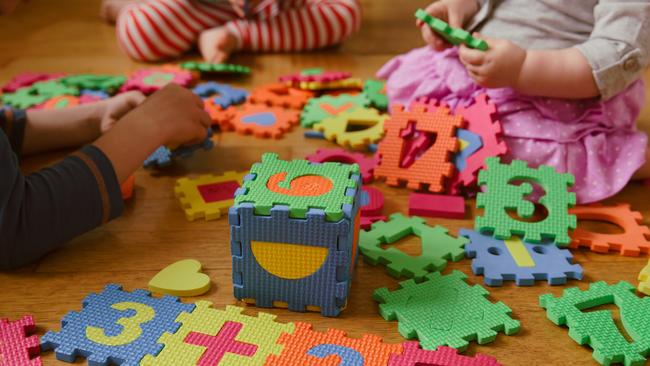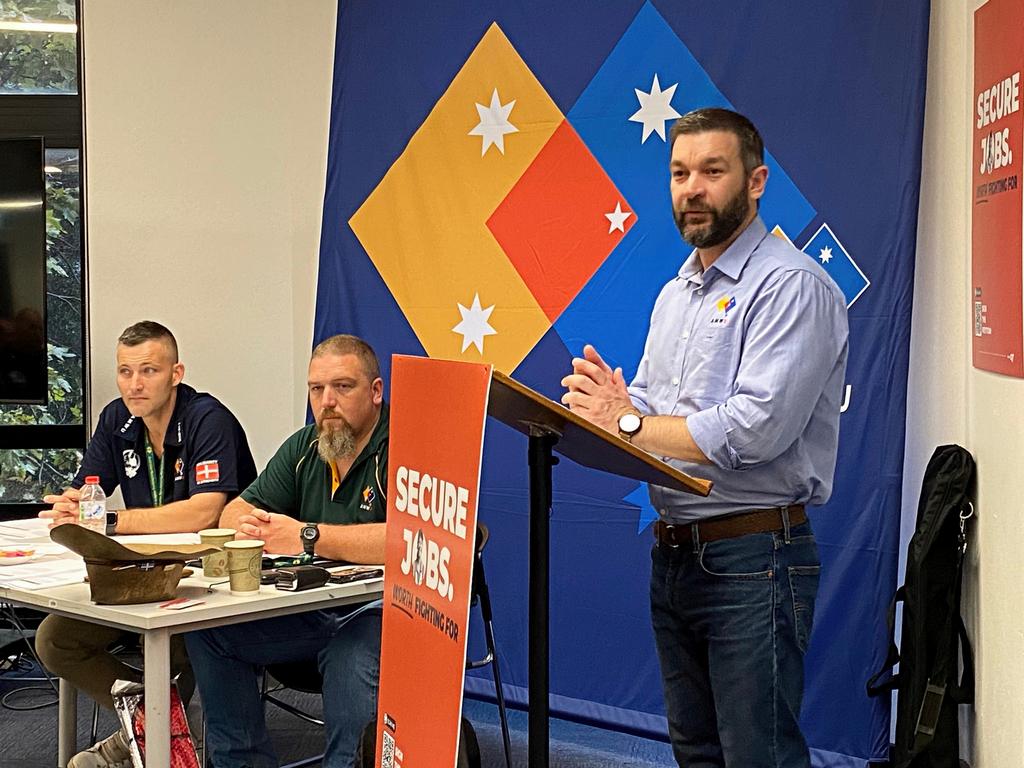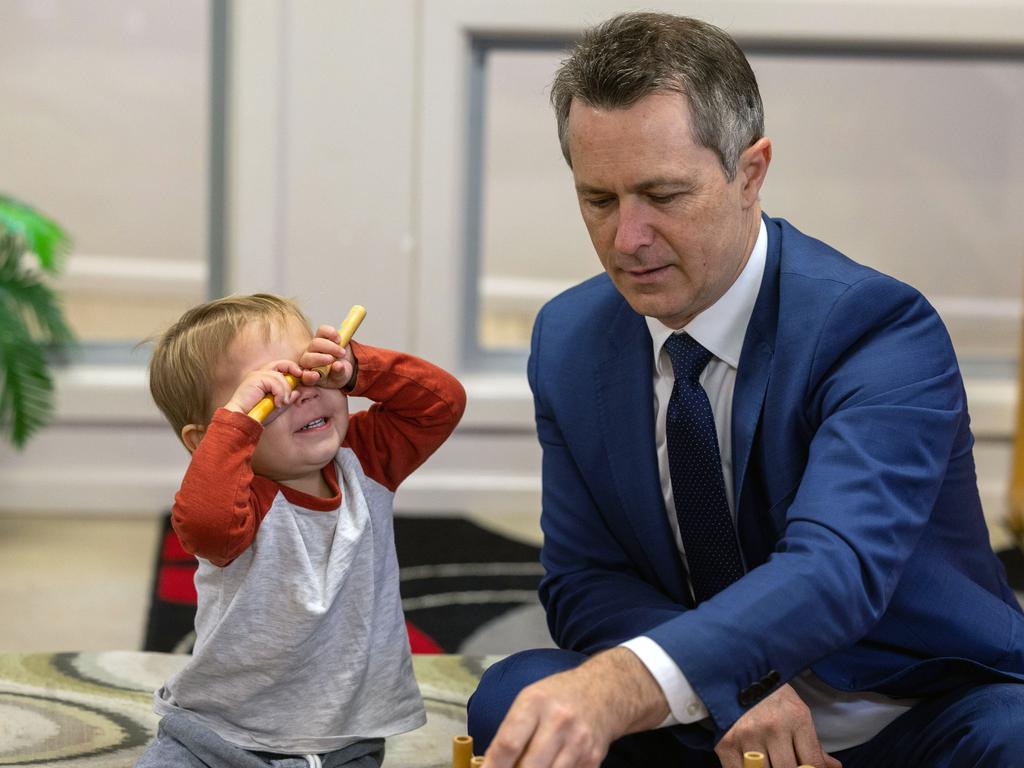Biggest multi-employer bargaining agreement grants 15 per cent pay rise to childcare staff
Australia’s biggest multi-employer bargaining agreement has been signed after the Albanese government agreed to stump up $3.6bn to cover a total 15 per cent pay rise for childcare workers.

Dozens of childcare operators have made history by endorsing the nation’s biggest multi-employer bargaining agreement, giving 12,000 staff a 10 per cent pay rise by Christmas.
The 63 employers include Australia’s only ASX-listed childcare provider, G8 Education, which will be able to use taxpayer grants to increase the wages of some 10,000 staff across 400 centres.
Lady Gowrie centres have also signed, although most of the employers operate one or two centres.
Thousands more employers are expected to join the agreement once it is endorsed by the Fair Work Commission, subject to staff votes over the next fortnight.
The historic deal will grant a 10 per cent pay rise to 12,000 workers next month, with a further 5 per cent increase next December.
It follows a similar agreement on Wednesday by the nation’s biggest childcare operator, the not-for-profit Goodstart Early Learning, covering 16,000 staff.
The Independent Education Union’s NSW/ACT branch secretary, Carol Matthews, said the 15 per cent wage increase would boost the pay of early childhood teachers – who have a four-year university degree – to $107,000 by the end of next year. For the lowest-paid workers, wages will rise $91 per week to $1002.
“It is a vital step towards closing the gender pay gap,’’ she said. “The education and care of our youngest children is important and indispensable work. These long overdue increases better reflect the valuable work of early childhood teachers in laying the vital foundations for our children’s development and lifelong learning.’’
The pay rises will cost taxpayers $3.6bn through grants to individual centres over the next two years.
In return for the funding, centres must cap fee increases to 4.4 per cent in the 12 months from August this year, and 4.2 per cent over the subsequent 12 months.
Centres have until June 30 next year to apply for the grants, which can be back-paid to December 1 this year.
Employers do not have to pass on the pay rise until they pocket the federal funding but must back pay the money to staff once the grant is received.
The Australian Childcare Alliance, representing 3000 operators, said the deal had taken to two years to negotiate.
“It’s our hope the improved wages will go some way to solving the recruitment and retention problem in the sector,’’ alliance president Paul Mondo said.
He said childcare centres could not afford such a pay rise without taxpayer funding or higher fee increases.
“Historically, whenever there’s been an increase in wages it has resulted in an increase to fees for families,’’ he said.
The United Workers Union, which has campaigned for more than a decade to increase childcare staff wages, hailed the agreement.
“We will see other providers joining the agreement in floods,’’ the union’s director of early education, Carolyn Smith, said. “It’s a quick and easy way for workers to get a pay rise into their pockets.
“The wage rise should go to every educator in Australia.’’
The pay rise will only cover staff employed under the Children’s Services Award and the Educational Services (Teachers) Award.
The federal government’s grant guidelines state that the funding must only be used to pay for fresh pay increases.
“You must not decrease your existing contribution towards wages and substitute this with grant funding,’’ they state.







To join the conversation, please log in. Don't have an account? Register
Join the conversation, you are commenting as Logout